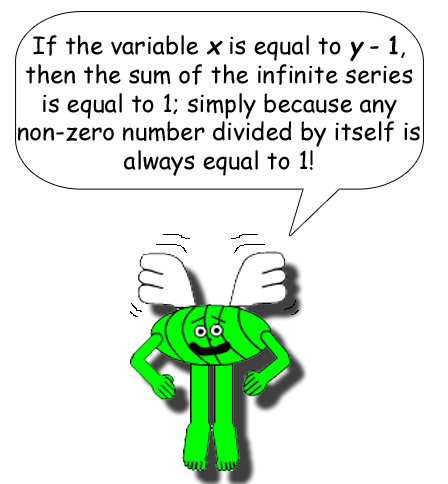

1/9 = 0.1111111111...
1/99 = 0.01010101...
1/999 = 0.001001001...
1/9,999 = 0.000100010001...
1/99,999 = 0.0000100001...
Have you noticed the pattern yet? The more nines the divisor has, the more zeroes you're likely to get in the quotient to the right of the decimal point! Don't forget that recurring decimals go on forever; they have an infinite amount of digits behind the decimal point!
3/9 = 0.3333333333... (Which is the same as 1/3)
17/99 = 0.1717171717...
123/999 = 0.123123123... (Which is the same as 41/333)
78/9,999 = 0.007800780078... (Which is the same as 26/3,333)
25/999 = 0.025025025...
3/999,999 = 0.000003000003... (Which is the same as 1/333,333)
625/999,999,999 = 0.000000625000000625...
If you don't want any zeroes in your quotient, pick a dividend (without any zeroes) that has as many digits as the divisor. You will, however, always get these digit patterns that repeat over & over forever!
Oops! I almost forgot something! Sometimes, people don't bother printing the integer zero to the left of the decimal point if the decimal is less than 1 but greater than 0, so [0.x] = [.x]!
9/9 = 99/99 = 999/999 = 9,999/9,999 = et cetera = 0.999999999... = 1
(Dividing any non-zero number by itself always gives you 1 as the quotient!)



Back to Index Page Back to Math Trick Menu
© Derek Cumberbatch